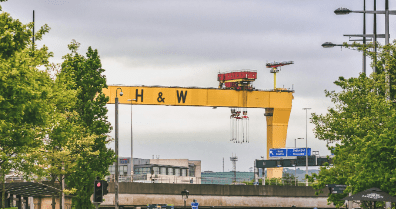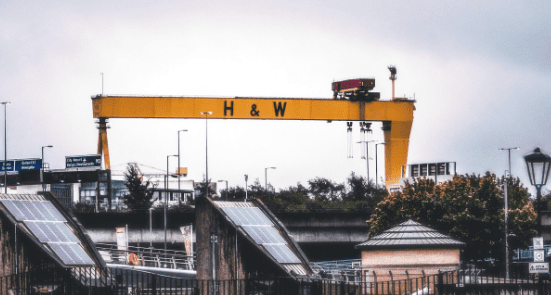The shipbuilding company Harland & Wolff, best known for building the Titanic, is going through tough times once more. For the second time in five years, the company is being placed into administration. This means the business is in financial trouble and needs help managing its debts.
Harland & Wolff has several shipyards, with the main one in Belfast, Northern Ireland. Other yards are located in Appledore, England, and two in Scotland—Methil and Arnish. While the situation is serious, the company’s leadership believes there is still hope. They think there’s a chance for these shipyards to keep operating under new owners.

What Does Administration Mean for the Shipyards?
The administration process only affects Harland & Wolff Group Holdings, the main holding company. The actual shipyards, which are run by other operational companies, are expected to keep working. However, shareholders who own part of the company will lose all the money they invested.
It’s a tough blow, especially for those who had faith in the company’s recovery. But the good news is that Harland & Wolff’s shipyards may still have a future, even if it’s under different ownership.
Why Is Harland & Wolff in Trouble?
The company has been struggling for some time, and one reason is that their “non-core” businesses have not been doing well. Non-core businesses are the parts of a company that aren’t its main focus. Harland & Wolff has already started winding down some of these operations, such as their ferry service to the Scilly Isles, which was shut down before it even got started.
They also own a small business in the U.S. and a marine services company, which they plan to sell. This sale could save about 14 jobs. Sadly, some employees working in non-core businesses or in support roles were told on Monday that they were losing their jobs.
The company warned that even more job cuts could happen if things don’t improve during the sales process. It’s a worrying time for the people who work there and their families.
Is There a Future for the Shipyards?
Despite the bad news, the company’s executive chairman, Russell Downs, remains hopeful. He believes that Harland & Wolff’s shipyards have a “credible future,” whether they continue together or separately. According to him, the yards have strong leadership and are working on projects that will bring in money in the future. However, they do need funding in the short term to keep going.
A big part of the company’s future depends on selling its shipyards. The investment bank Rothschild is handling this process, and several companies have already shown interest in buying the yards. The first round of bids is expected soon.

One company that might buy the Belfast yard is Navantia, a shipbuilder owned by the Spanish government. Navantia is currently working with Harland & Wolff on a project to build three logistics ships for the Royal Navy. Another company that might be interested is Babcock International, a UK defense contractor.
Mr. Downs said he hopes to have a deal, or multiple deals, finalized by the end of October. If everything goes well, this could secure the future of Harland & Wolff’s shipyards.
A Scandal Behind the Scenes
On top of their financial struggles, Harland & Wolff is also dealing with an investigation into the “misapplication” of funds. This means that money might have been used in the wrong way under the company’s previous management.
The investigation is looking into how over £25 million was handled. Accountants from PwC and lawyers from Simmons and Simmons have been brought in to get to the bottom of it. Former CEO John Woods called the accusations “ridiculous,” but the investigation is still ongoing.
Workers Face Uncertainty
For the people who work at Harland & Wolff, this is a very difficult and stressful time. Matt Roberts, a national officer for the GMB Union, said that workers, their families, and entire communities are facing chaos because of what he called failures in corporate management.

Mr. Roberts also emphasized the importance of Harland & Wolff’s shipyards to the UK’s future, especially in industries like renewable energy and shipbuilding. He urged the government to step in and make sure no private company is allowed to “cherry-pick” which parts of the business they want to keep.
Harland & Wolff’s leadership is aware of how hard this situation is for everyone involved. Mr. Downs acknowledged that the news will be very tough for the staff, especially those directly affected by job losses. He also knows it will be disappointing for shareholders who have supported the company over the last five years.
Looking Ahead
While Harland & Wolff’s situation is far from ideal, there is still hope for the future of its shipyards. The company’s leadership is working hard to find new owners and ensure that the shipyards can continue operating. However, there’s no doubt that this is a challenging time for everyone involved—especially the workers who are now facing an uncertain future.
As Harland & Wolff moves through the administration process, all eyes will be on the outcome of the sales process and the ongoing investigation into how funds were handled in the past. For now, the company is doing everything it can to navigate through these troubled waters and find a way to keep its historic shipyards afloat.








